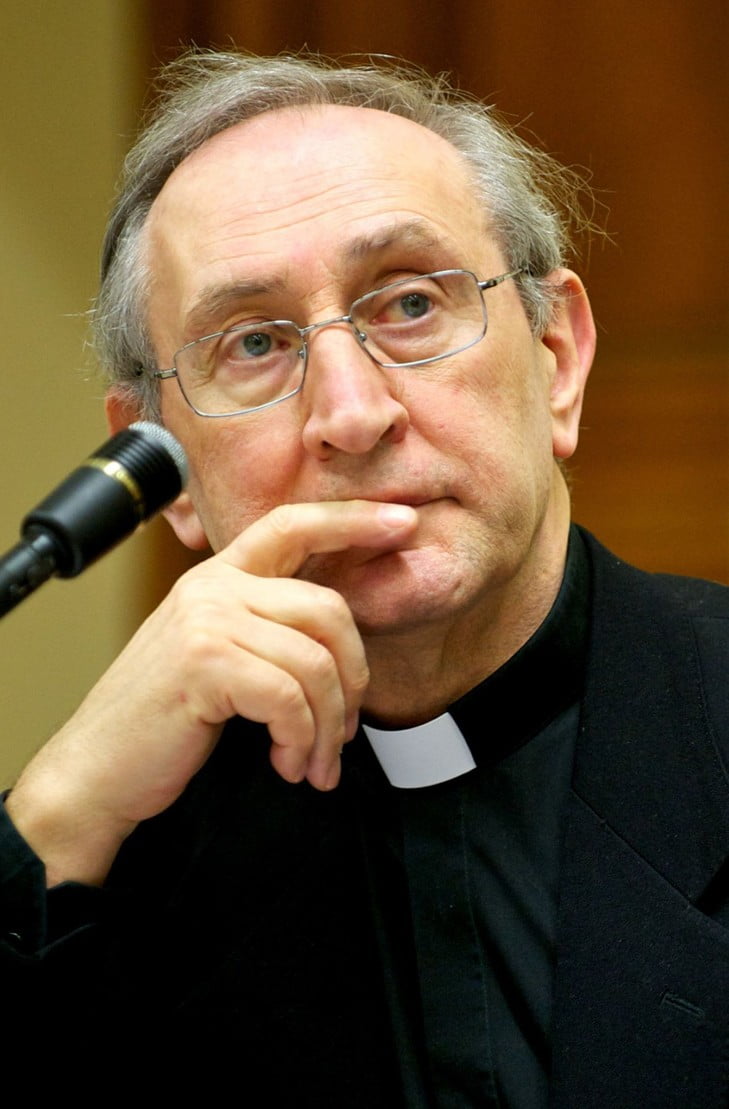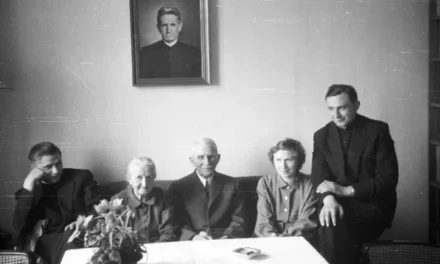Hypocrisy distorts devotion, “since instead of being” to the glory of God “, it is oriented towards exaltation and honor of man,” stressed Fr. Pietro Bovati, preacher of the Lenten retreat of the Roman Curia, in the afternoon of March 3, 2020.
He warned against the temptation to seek “to see” God rather than to listen to him, in a search for tangible evidence that leads to idolatry.
The Jesuit dedicated his meditation to the “lack of faith”: “In us too there are phenomena of blindness, of idolatry, which are essentially a lack of faith in the Lord Jesus, the incapacity to live in (him) really trusting, “he said.
The first commandment – “You will have no other god” -, explained Fr. Bovati, aims “a very serious blindness” which touches the conscience: “It is sin which cannot be cured, because it is not recognized”, it is assimilated “to sin against the spirit, without remedy”.
“Hypocrisy is a lie,” continued the Italian biblical scholar, “because it substitutes the appearance of kindness for good action, it distorts the devout practice since instead of being” to the glory of God “, it is oriented towards exaltation and honor of man. Hypocrisy does not know how to judge, it does not know what true discernment is; she is blind, she does not know justice, mercy, fidelity, she identifies good with material practices and achievements. ”
For the preacher, “all the evils” come from not recognizing God: “We no longer listen to the voice of the Lord, distortions of various natures occur because each makes his god, makes his law, makes his bliss ”, as in the episode of the golden calf. But this idolatry arises from the desire for certainties: we prefer to “see” rather than listen to the voice of the invisible God.
“The talisman,” he said, “can take the form of a doctrinal or disciplinary constitution. Its rigidity, which is synonymous with solidity and durability, the clear and controllable aspect of the doctrine, even its intellectual quality, are seemingly deceptive if this construction replaces the humble and permanent listening of the voice of God who speaks like spirit. If we substitute knowledge for believing … we believe we have the truth instead of looking for it and listening to it in humble docility. ”
“Well done ceremonies are not enough if they are not based on authentic prayer which is above all listening,” concluded Father Bovati. “Jesus said,“ Courage. I defeated the world. ” He also conquered it for us, so that in recognition of our lack of faith, we could still sing a hymn of praise, turning a loving look to Him, our only God, our Savior. ”
xxxxxxxx
L’AGENCE DE NOUVELLES RECOWACERAO vous apporte un extrait de la retraite de lentilles prêchée par p. Pietro Bovati
L’hypocrisie déforme la dévotion, « puisqu’au lieu d’être “à la gloire de Dieu”, elle est orientée vers l’exaltation et l’honneur de l’homme », a souligné le p. Pietro Bovati, prédicateur de la retraite de carême de la Curie romaine, dans l’après-midi du 3 mars 2020.
Il a mis en garde contre la tentation de chercher « à voir » Dieu plutôt qu’à l’écouter, dans une recherche de preuves tangibles qui mène à l’idolâtrie.
Le jésuite a consacré sa méditation au « manque de foi » : « En nous aussi il y a des phénomènes de cécité, d’idolâtrie, qui sont essentiellement un manque de foi dans le Seigneur Jésus, l’incapacité de vivre en (lui) faisant vraiment confiance », a-t-il constaté.
Le premier commandement – « Tu n’auras pas d’autre dieu » -, a expliqué le p. Bovati, vise « une cécité très grave » qui touche la conscience : « C’est le péché qui ne peut pas être guéri, parce qu’il n’est pas reconnu », il s’assimile « au péché contre l’esprit, sans remède ».
« L’hypocrisie est mensonge, a poursuivi le bibliste italien, parce qu’elle substitue l’apparence de la bonté à la bonne action, elle déforme la pratique dévote puisqu’au lieu d’être “à la gloire de Dieu”, elle est orientée vers l’exaltation et l’honneur de l’homme. L’hypocrisie ne sait pas juger, elle ne sait pas ce qu’est le vrai discernement ; elle est aveugle, elle ne connaît pas la justice, la miséricorde, la fidélité, elle identifie le bien avec des pratiques et des réalisation matérielles. »
Pour le prédicateur, « tous les maux » viennent du fait de pas reconnaître Dieu : « On n’écoute plus la voix du Seigneur, des distorsions de diverses natures se produisent car chacun se fait son dieu, se fait sa loi, se fait sa béatitude », comme dans l’épisode du veau d’or. Mais cette idolâtrie naît du désir de certitudes : on préfère « voir » plutôt qu’écouter la voix de Dieu invisible.
« Le talisman, a-t-il fait observer, peut avoir la forme d’une constitution doctrinale ou disciplinaire. Sa rigidité, qui est synonyme de solidité et de pérennité, l’aspect clair et contrôlable de la doctrine, même sa qualité intellectuelle, sont des semblants trompeurs si cette construction se substitue à l’écoute humble et permanente de la voix de Dieu qui parle comme esprit. Si l’on substitue le savoir au croire… on croit posséder la vérité au lieu de la chercher et de l’écouter dans une humble docilité. »
« Les cérémonies bien faites ne suffisent pas si elles ne sont pas fondées sur la prière authentique qui est avant tout écoute », a conclu le père Bovati. « Jésus a dit : “Courage. J’ai vaincu le monde”. Il l’a vaincu aussi pour nous, afin que dans la reconnaissance de notre peu de foi, nous puissions malgré tout entonner un hymne de louange, en tournant un regard aimant vers Lui, notre seul Dieu, notre Sauveur. »
- RECOWA-CERAO WELCOMES TWO NEW BISHOPS - July 26, 2024
- TODAY WE ARE TAKING UP THE THIRD SEGMENT IN OUR SERIES - July 26, 2024
- CHARACTERISTICS OF GREAT LEADERS SHARED BY A USA AUTHOR - July 25, 2024







